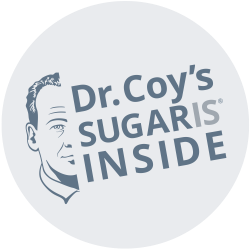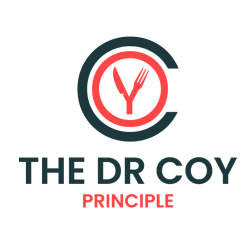Is there a link between sugar and Alzheimer’s disease?
Your brain needs sugar to function properly, but too much sugar in the blood increases the risk of Alzheimer’s and dementia.
When you eat, your body turns parts of the food into a type of sugar called glucose. Glucose plays an important role in our metabolism and the glucose level in our blood and tissues must be properly controlled. There are two hormones that control the blood glucose level. The hormone glucagon increases the blood glucose level, and the hormone insulin reduces the blood glucose level. Insulin enables cells to take up glucose from the blood. After taking on glucose, the cell can use it to release energy, to create new cells by cell duplication (so called cell division) or to convert glucose into fat.
The risks of eating too much sugar
If you eat too much sugar or the wrong kind of sugar, high blood glucose levels are promoted. This causes insulin to be secreted by the pancreas and the insulin leads to an uptake of glucose into the cells. Over time if blood glucose levels are too high, high amounts of insulin must be secreted. Cells then become repeatedly resistant to insulin and can no longer take glucose from the blood. Since our brain needs huge amounts of glucose, insulin resistance prevents the uptake of blood glucose into the brain and as a consequence the brain doesn’t get enough glucose to function. Since glucose is an important component for survival of brain cells, insulin resistance causes a dangerous glucose deprivation in brain cells leading to cell death. Studies have shown that high blood glucose levels and insulin resistance are major risk factors for developing memory loss and Alzheimer’s.
Insulin resistance and Alzheimer’s
In elderly people, this can mean that the brain doesn’t get enough glucose, even if high levels of glucose are present in the blood. Insulin resistance prevents the uptake of blood glucose into the brain leading to poor brain function. If the brain’s memory centre, the hippocampus, doesn’t get enough sugar, this can cause forgetfulness. New memories are harder to store and older memories drift away. If the hippocampus does not get enough glucose, the death of brain cells causes the loss of long-term memories. This is because the connection between the hippocampus brain region and other brain regions storing long term memories is being destroyed.
Since high blood glucose levels and insulin resistance play such an important factor for developing Alzheimer’s, leading scientists refer to Alzheimer’s as ‘Type 3 diabetes’.


A healthy diet can protect against dementia and Alzheimer’s
You can modify your diet to help prevent Alzheimer’s, studies show that high blood glucose levels could have a negative impact on cognition. Avoiding high blood glucose levels in elderly people can improve brain function, which provides better cognitive function.
Adding galactose to the diet of people with Alzheimer’s can improve the energy supply to the hippocampus, which will protect it over time. Recent studies show that high blood glucose levels and high HbA1c levels are associated with an increased risk of memory loss and dementia.
- Galactose, one of Dr Coy’s sugars, is absorbed by the brain without the need of insulin to generate energy and help to prevent loss of concentration, coordination, and memory. It causes low insulin release, which helps to avoid problems with insulin resistance. The hippocampus requires no insulin to absorb galactose, and therefore galactose is being taken up by the hippocampus even when insulin resistance exists. Galactose as a sugar, which can be used by the hippocampus in an insulin independent way protects it from degeneration, because galactose can be used as an energy fuel.
Galactose also protects from toxic substances caused by amino acids. If our body and especially the brain need a lot of energy, our sugar deposits are being used as energy fuel. Glucose is stored as chains of lots of glucose, called glycogen deposits. These are being used when we need additional glucose. Hours of working or exercising depletes our sugar stores. In this case, our metabolism starts to use amino acids to create glucose. Whereas some amino acids can be used for creating glucose (glucogenic amino acids), others cannot (ketogenic amino acids). The glucogenic amino acids are used to produce glucose when the glucose deposits are empty. The use of amino acids for glucose production releases the toxic amino group NH3 (ammonia). Ammonia is a toxic substance which damages the brain. Galactose is able to neutralize the toxic ammonia, and as a result a new amino acid is created. Therefore, galactose can neutralize the toxic ammonia, protecting the brain and the rest of the body.
If there are already signs of insulin resistance, consuming 8g of galactose three times a day can help energise the hippocampus. Combining galactose and the glucose-containing sugars isomaltulose and trehalose is a good way to decrease insulin resistance. It also promotes the use of galactose as energy fuel, which can be taken up by the hippocampus even in the presence of insulin resistance.
Here are a few examples of other dietary supplements that can help improve memory:
- Medium chain triglyceride (MCT) oils and coconut oils can help with the formation of ketone bodies, which provide the brain with additional energy. MCT oils and Dr Coy’s sugars work well as part of a keto diet. Try adding a tablespoon of coconut oil or a teaspoon of MCT oil to your daily diet.
- B vitamins, especially vitamin B1 in the form of benfotiamine, can help promote the development of new brain cells and support optimal brain function. 100mg is the recommended daily amount.
- Lithium is a trace element found in some mineral waters and food supplements, that may help fight dementia and improve mood. Drink at least 1-2 litres per day together with Dr Coy’s sugars for additional brain benefits.
- Polyphenols can trigger the formation of new nerve cells in the brain (neurogenesis), and are found in berries, green tea, grape seeds, and other plants. The recommended amount is 500-750mg per day.
- Since our brains need sugar, combining Dr Coy’s sugars such as galactose, trehalose, and isomaltulose, can help provide the brain with a safe and sufficient supply of energy. The use of the calorie reduced Dr Coy’s sugar tagatose as well as the mixture of the calorie free erythritol and stevia can be used to reduce the overall amount of calories without reduction of sweetness.
Monitoring blood sugar levels and making intelligent food choices can improve brain health and decrease the chances of getting Alzheimer’s in the future.
Our recipes page is packed with ideas for incorporating Dr Coy’s sugars into your diet.
A blood test for Alzheimer’s?
In addition to testing for blood sugar levels and high HbA1c levels, a simple blood test is in development to look for Alzheimer proteins in the blood. The test will analyse phagocytes in the blood, which remove cell waste. Too many of these proteins found in the phagocytes will give a clear indication of damage to brain cells.
- Crane PK, Walker R, Hubbard RA, Li G, Nathan DM, Zheng H, Haneuse S, Craft S, Montine TJ, Kahn SE, McCormick W, McCurry SM, Bowen JD, Larson EB. Glucose levels and risk of dementia. N Engl J Med. 2013 Aug
- Kerti L, Witte AV, Winkler A, Grittner U, Rujescu D, Flöel A. Higher glucose levels associated with lower memory and reduced hippocampal microstructure. Neurology. 2013 Nov
- Wium-Andersen IK, Rungby J, Jørgensen MB, Sandbæk A, Osler M, Wium-Andersen MK. Risk of dementia and cognitive dysfunction in individuals with diabetes or elevated blood glucose. Epidemiol Psychiatr Sci. 2019 Aug 28
- Willette AA, Johnson SC, Birdsill AC, Sager MA, Christian B, Baker LD, Craft S, Oh J, Statz E, Hermann BP, Jonaitis EM, Koscik RL, La Rue A, Asthana S, Bendlin BB. Insulin resistance predicts brain amyloid deposition in late middle-aged adults. Alzheimers Dement. 2015 May
- Chiroma SM, Baharuldin MTH, Mat Taib CN, Amom Z, Jagadeesan S, Ilham Adenan M, Mahdi O, Moklas MAM. Centella asiatica Protects d-Galactose/AlCl3 Mediated Alzheimer’s Disease-Like Rats via PP2A/GSK-3β Signaling Pathway in Their Hippocampus. Int J Mol Sci. 2019 Apr 16
- Portbury SD, Hare DJ, Sgambelloni C, Perronnes K, Portbury AJ, Finkelstein DI, Adlard PA. Trehalose Improves Cognition in the Transgenic Tg2576 Mouse Model of Alzheimer’s Disease. J Alzheimers Dis. 2017
- Portbury SD, Hare DJ, Finkelstein DI, Adlard PA. Trehalose improves traumatic brain injury-induced cognitive impairment. PLoS One. 2017 Aug 24
- Xie X, Gao Y, Zeng M, Wang Y, Wei TF, Lu YB, Zhang WP. Nicotinamide ribose ameliorates cognitive impairment of aged and Alzheimer’s disease model mice. Metab Brain Dis. 2019 Feb
- Roser M, Josic D, Kontou M, Mosetter K, Maurer P, Reutter W. Metabolism of galactose in the brain and liver of rats and its conversion into glutamate and other amino acids. J Neural Transm (Vienna). 2009 Feb
- Roser M, Josic D, Kontou M, Mosetter K, Maurer P, Reutter W. Metabolism of galactose in the brain and liver of rats and its conversion into glutamate and other amino acids. J Neural Transm (Vienna). 2009 Feb
- A Malgrange, Brigitte, A Nguyen, Laurent, Scaling brain neurogenesis across evolution, 2022, Science, Journal Article
- Pinson, L. Xing, T. Namba, N. Kalebic, J. Peters, C. E. Oegema, S. Traikov, K. Reppe, S. Riesenberg, T. Maricic, R. Derihaci, P. Wimberger, S. Pääbo, W. B. Huttner, Human TKTL1 implies greater neurogenesis in frontal neocortex of modern humans than Neanderthals.Science377, eabl6422 (2022).
- Honma Y, Sato-Morita M, Katsuki Y, Mihara H, Baba R, Hino K, Kawashima A, Ariyasu T, Harada M. Trehalose alleviates oxidative stress-mediated liver injury and Mallor-Denk body formation via activating autophagy in mice. Med Mol Morphol. 2021 Mar
- Jain, Tanya, Li, Yue-Ming, Gut microbes modulate neurodegeneration, Science, Journal Article, 2023
- CUBER, Iwona, AGHADI, Artur, BIAŁOWĄS, Edyta, DYBAŁA, Ewelina, MAZUREK, Magdalena & GÓRNA, Marta. Ketogenic diet – a literature review. Journal of Education, Health and Sport [online]. 20 February 2023
- John Grizzanti, William R. Moritz, Morgan C. Pait, Molly Stanley, Sarah D. Kaye, Caitlin M. Carroll, Nicholas J. Constantino, Lily J. Deitelzweig, James A. Snipes, Derek Kellar, Emily E. Caesar, Ryan J. Pettit-Mee, Stephen M. Day, Jonathon P. Sens, Noelle I. Nicol, Jasmeen Dhillon, Maria S. Remedi, Drew D. Kiraly, Celeste M. Karch, Colin G. Nichols, David M. Holtzman, Shannon L. Macauley, KATP channels are necessary for glucose-dependent increases in amyloid-β and Alzheimer’s disease–related pathology, JCI Insight. 2023;8(10):e162454.
- Hosseinpour-Moghaddam K, Caraglia M, Sahebkar A. Autophagy induction by trehalose: Molecular mechanisms and therapeutic impacts. J Cell Physiol. 2018 Sep
Get in touch with Intelligent Sugar
Got a question about Dr Coy’s sugars? Contact info@intelligentsugar.info
If you have a question about a specific health condition, please speak to your doctor.

